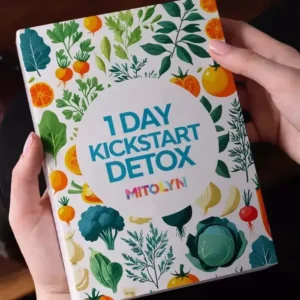Why You Should Concentrate On Enhancing Anti-aging cellular repair

Anti-Aging Cellular Repair: Unlocking the Secrets to Vitality
As we age, our cells undergo various modifications that can jeopardize our body's capability to repair and regrow itself. However, emerging research in the realm of anti-aging and cellular repair provides new insights into methods we may combat the effects of aging. This post explores the science behind cellular aging, essential mechanisms involved in cellular repair, and promising techniques that could enhance durability and vitality.
Comprehending Cellular Aging
Cellular aging, also described as senescence, is a complex process influenced by a variety of factors. As cells divide and reproduce gradually, they collect damage due to environmental stress factors, metabolic processes, and even the intrinsic body clock known as telomeres-- protective caps on the ends of chromosomes that shorten with each cellular division.
Secret Factors Contributing to Cellular Aging
| Aspect | Description |
|---|---|
| Telomere reducing | As cells divide, telomeres reduce, resulting in eventual cell senescence or apoptosis (configured cell death). |
| Oxidative stress | The accumulation of oxidative damage from totally free radicals can damage cellular elements like DNA, proteins, and lipids. |
| Mitochondrial dysfunction | Mitochondria, the powerhouses of the cell, can lose their effectiveness, resulting in reduced energy production and increased apoptosis. |
| Swelling | Chronic swelling, often described as "inflammaging," can lead to cellular dysfunction across numerous systems. |
The Mechanisms of Cellular Repair
Cells have developed a number of systems to neutralize damage and promote repair. Comprehending these systems is important for harnessing their capacity in anti-aging treatments.
Secret Mechanisms of Cellular Repair
| System | Description |
|---|---|
| Autophagy | A process where cells get rid of harmed parts and recycle cellular materials. |
| DNA Repair | Various systems, such as base excision repair and nucleotide excision repair, help fix DNA damage. |
| Cellular Senescence | While some cells go into a state of senescence as a protective mechanism, the build-up of senescent cells can add to aging. |
| Stem Cell Activation | Stem cells can renew damaged or lost cells, contributing to tissue repair and regrowth. |
Methods for Enhancing Cellular Repair
A range of approaches can potentially improve cellular repair systems, eventually intending to decrease the aging process. Here are some efficient techniques:
1. Nutrition
A balanced diet rich in anti-oxidants can combat oxidative stress and boost cellular stability. Foods high in vitamins C and E, polyphenols, and omega-3 fats provide protective benefits.
2. Workout
Routine physical activity has actually been shown to boost mitochondrial function and promote autophagy, leading to enhanced cellular health.
3. Sleep
Appropriate sleep is essential for repair procedures, including DNA repair and protein synthesis. Poor sleep can worsen the effects of aging, making corrective sleep necessary.
4. Stress Management
Persistent tension can result in swelling and speed up aging. Techniques like mindfulness, yoga, and meditation can assist mitigate these effects.
5. Supplements
Certain supplements show pledge in promoting cellular repair. For example:
| Supplement | Prospective Benefits |
|---|---|
| Resveratrol | May enhance autophagy and decrease inflammation. |
| NAD+ precursors (e.g., NMN, NR) | Can support mitochondrial function and increase longevity. |
| Curcumin | Has anti-inflammatory residential or commercial properties and might promote cellular repair. |
Cutting-Edge Research and Therapies
Recent scientific improvements are checking out novel interventions to target cellular aging and empower repair systems.
1. Senolytics
These drugs selectively remove senescent cells, which have actually been discovered to contribute to age-related diseases. Research studies recommend that clearing these cells might reverse some elements of aging.
2. Gene Therapy
Gene modifying techniques like CRISPR offer prospective opportunities for repairing faulty genes connected with aging and boosting cellular repair systems.
3. Telomere Extension
Research study is ongoing in methods to extend telomeres, possibly reversing cellular aging processes.
FREQUENTLY ASKED QUESTION: Your Anti-Aging Cellular Repair Questions
Q1: What are the indications of cellular aging?
Common indications of cellular aging include fatigue, decreased flexibility to tension, increased susceptibility to health problem, slower recovery processes, and the development of chronic conditions.
Q2: Can way of life changes really effect aging at the cellular level?
Absolutely! Way of life factors such as diet, workout, sleep, and tension management significantly affect cellular health and aging processes.
Q3: Are there threats related to anti-aging therapies?
As with any treatment, there are prospective risks involved. Senolytics and gene treatments are still in the speculative stage, and long-term effects are not fully comprehended.
Q4: How crucial is nutrition for cellular repair?
Nutrition plays a critical function. Diets rich in antioxidants and anti-inflammatory foods can nourish cells and safeguard versus damage, promoting effective repair mechanisms.
Q5: What role does hydration play in cellular health?
Proper hydration is vital for cellular function. Water helps transfer nutrients, cleanse the body, and preserve optimal cellular conditions, adding to general health and repair.
The mission for anti-aging cellular repair is more than simply a pursuit for younger appearance; it's about improving life's quality and durability. As research advances, we acquire deeper insights into how our cells age and the ingenious techniques we can use to revitalize them. By embracing mitolyn usa -- prioritizing nutrition, way of life, and cutting-edge treatments-- individuals can take significant actions towards ideal cellular health and vigor. As the landscape of anti-aging continues to develop, the future holds appealing chances for humans to flourish at every age.

